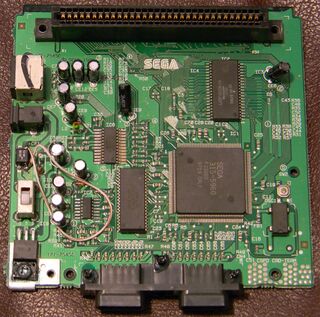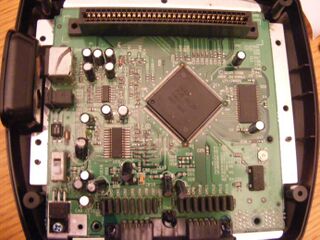Difference between revisions of "Sega Mega Drive/Hardware revisions"
From Sega Retro
RedSparkster (talk | contribs) |
m (→Model 1: italics) |
||
| Line 22: | Line 22: | ||
Due to a last-minute issue with the VDP in H40 mode, additional clock circuitry had to be added during manufacturing. This circuitry is present on a daughterboard in the center of the PCB, and contains the master oscillator (53.6931 MHz, NTSC), a 74LS74 (dual D-type flip-flops), and two 74LS161s (4-bit counter). | Due to a last-minute issue with the VDP in H40 mode, additional clock circuitry had to be added during manufacturing. This circuitry is present on a daughterboard in the center of the PCB, and contains the master oscillator (53.6931 MHz, NTSC), a 74LS74 (dual D-type flip-flops), and two 74LS161s (4-bit counter). | ||
| − | An issue in the hardware causes the RAM memory to not completely initialize when the game starts, causing crashes in [[Osomatsu-kun Hachamecha Gekijou]]. | + | An issue in the hardware causes the RAM memory to not completely initialize when the game starts, causing crashes in ''[[Osomatsu-kun Hachamecha Gekijou]]''. |
}} | }} | ||
{{SectionsNew | {{SectionsNew | ||
Revision as of 22:38, 16 October 2022
- Back to: Sega Mega Drive.
| This article needs cleanup. This article needs to be edited to conform to a higher standard of article quality. After the article has been cleaned up, you may remove this message. For help, see the How to Edit a Page article. |
Model 1
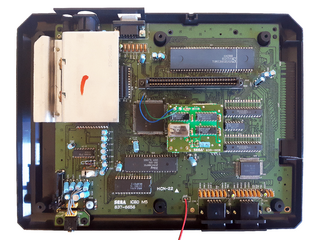
|
VA0 (JPN) |
|---|---|
Components:
Due to a last-minute issue with the VDP in H40 mode, additional clock circuitry had to be added during manufacturing. This circuitry is present on a daughterboard in the center of the PCB, and contains the master oscillator (53.6931 MHz, NTSC), a 74LS74 (dual D-type flip-flops), and two 74LS161s (4-bit counter). An issue in the hardware causes the RAM memory to not completely initialize when the game starts, causing crashes in Osomatsu-kun Hachamecha Gekijou. | |
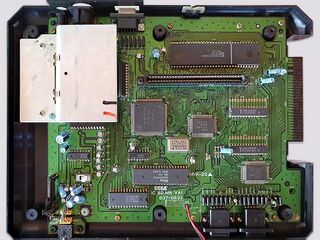
|
VA1 (JPN) |
Components:
| |
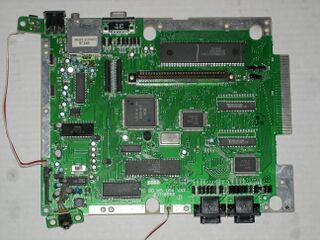
|
VA2 (USA, High Definition Graphics) |
Components:
| |

|
VA3 (USA, High Definition Graphics) |
Components:
| |
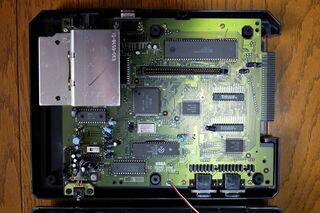
|
VA4 (JPN) |
Components:
| |
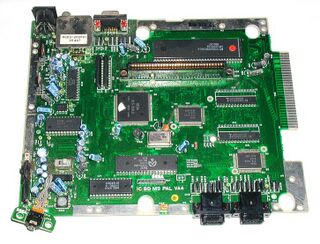
|
VA4 (PAL) |
Components:
| |
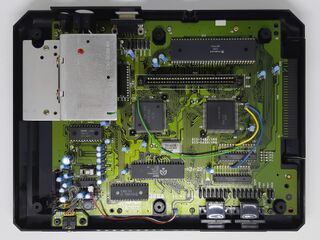
|
VA5 (JPN) |
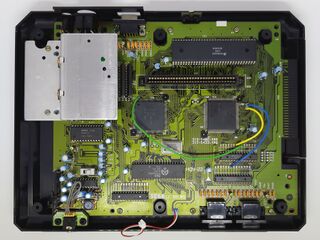
|
VA6 (JPN) |
| The first Japanese revision with the TMSS. | |
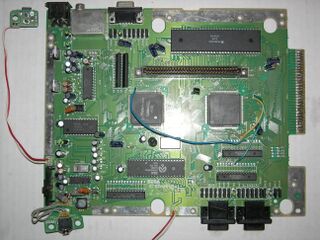
|
VA6 (USA, High Definition Graphics) |
Components:
| |
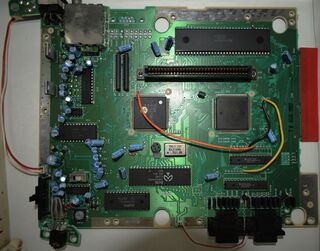
|
VA6.5 (PAL) |
| This model removed the Mega Modem port | |
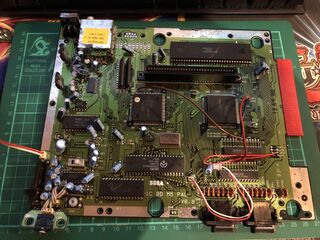
|
VA6.8 |
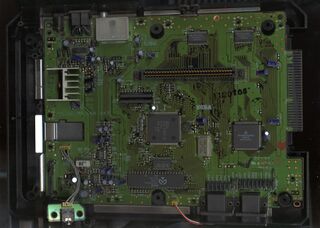
|
VA7 (USA) |
| FM Synthesizer: ASIC integrated YM3438
A function on the VDP has broken PAL 50Hz support |
Model 2
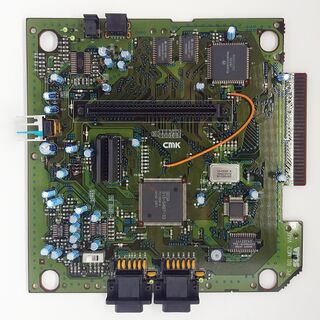
|
VA0 (JPN) |
|---|---|
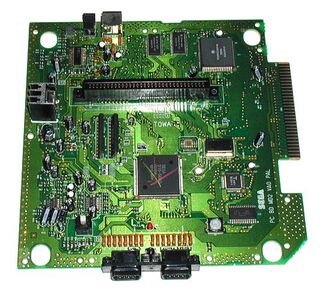
|
VA0 (PAL) |
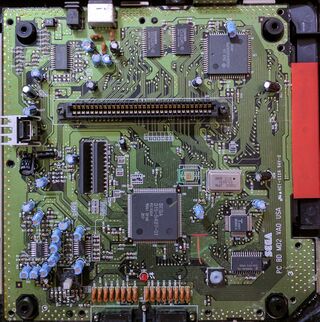
|
VA0 (USA) |
Components:
| |
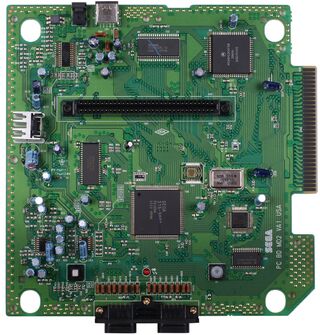
|
VA1 (USA) |
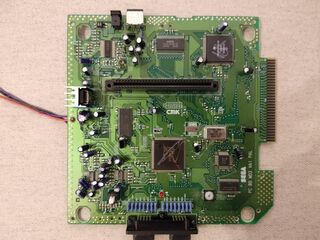
|
VA1 (PAL) |
Components:
| |
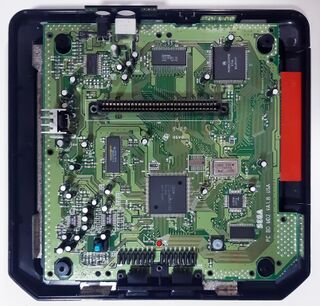
|
VA1.8 (USA) |
| PCB Printed by SKS
Components:
| |
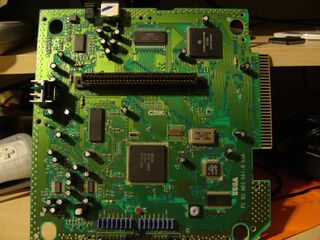
|
VA1.8 (USA) |
| PCB Printed by CMK
Components:
| |
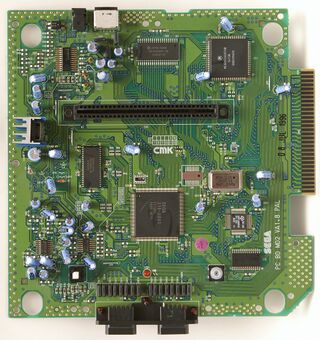
|
VA1.8 (PAL) |
Components:
| |
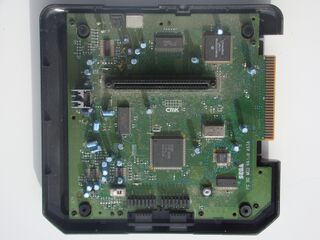
|
VA1.8 (Asia) |
Components:
| |
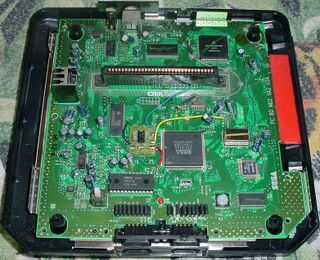
|
VA2 (USA) |
| This revision uses a YM2612 rather than the ASIC integrated YM3438 of other Model 2 consoles | |
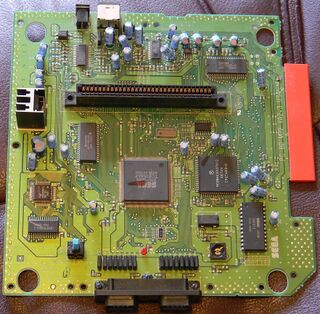
|
VA2.3 (USA) |
| This revision also uses a YM2612 like the VA2 Model 2 | |
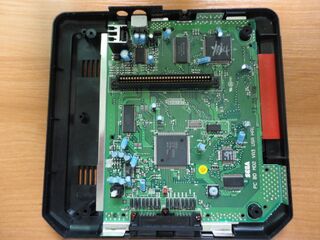
|
VA3 |
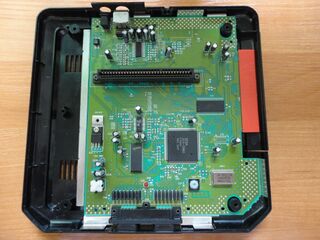
|
VA4 |
Components:
This is the first Mega Drive board without any discrete CPUs. Both the 68000 and Z80 are contained with the Sega 315-5960 ASIC, as well as the VDP, YM2612, and I/O controllers. |
